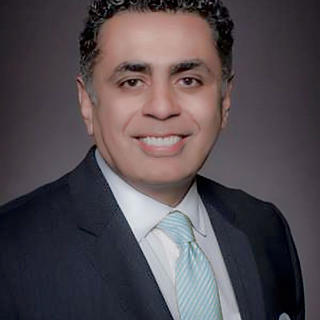Is Buying a Healthcare Franchise Worth It? Pros and Cons Explained
- Dr Allen Nazeri DDS MBA
- Jun 30, 2024
- 4 min read

The Pros and Cons of Buying a Healthcare Franchise: A Comprehensive Guide
Introduction
Buying a healthcare franchise can be a lucrative and fulfilling venture. As the demand for healthcare services continues to rise, franchising offers a way to enter this vital industry with support and established branding. However, like any business decision, it comes with its own set of advantages and challenges. This analysis will explore the pros and cons of buying a healthcare franchise to help potential investors make informed decisions.
Pros of Buying a Healthcare Franchise
Established Brand and Reputation
Brand Recognition: One of the primary advantages is leveraging an established brand. Consumers are more likely to trust and seek services from a well-known name.
Reputation: A recognized brand often comes with a positive reputation, which can attract customers more easily compared to starting a new business from scratch.
Proven Business Model
Operational Guidelines: Franchises offer a tested and proven business model. This includes guidelines on how to operate, from marketing strategies to daily operations.
Lower Risk: The risk of failure is significantly reduced as the business model has already been successful in other locations.
Training and Support
Initial Training: Franchisors provide comprehensive training for new franchisees, ensuring they understand the business operations, customer service protocols, and compliance requirements.
Ongoing Support: Continuous support is available, including marketing assistance, operational advice, and sometimes even financial planning.
Marketing and Advertising
National Advertising: Many healthcare franchises engage in national or regional advertising campaigns, increasing brand visibility and attracting more customers.
Local Marketing: Franchisors often help franchisees with local marketing strategies and materials, ensuring consistency in branding and messaging.
Access to Resources
Bulk Purchasing: Franchisees benefit from bulk purchasing power, reducing the cost of medical supplies, equipment, and other necessities.
Technology and Software: Franchisors typically provide access to specialized software for managing patient records, billing, and other critical functions, enhancing efficiency.
Regulatory Compliance
Guidance on Laws and Regulations: Healthcare is heavily regulated, and franchisors provide guidance on complying with federal, state, and local regulations, reducing the risk of legal issues.
Standardized Procedures: Established procedures help ensure that all franchise locations adhere to industry standards and best practices.
Cons of Buying a Healthcare Franchise
Initial Investment and Fees
High Initial Costs: The cost to buy into a healthcare franchise can be significant, including franchise fees, setup costs, and the need for specialized equipment.
Ongoing Fees: Franchisees must pay ongoing royalties and marketing fees, which can be a percentage of revenue or a fixed amount.
Limited Autonomy
Strict Guidelines: Franchisees must adhere to strict operational guidelines and policies set by the franchisor, limiting the ability to make independent decisions.
Less Flexibility: There is less flexibility to innovate or adapt the business model to local market conditions or personal business preferences.
Profit Sharing
Royalties and Fees: A portion of profits must be shared with the franchisor in the form of royalties and fees, which can impact overall profitability.
Marketing Contributions: Mandatory contributions to marketing funds can feel burdensome, especially if the franchisee believes local advertising would be more effective.
Dependence on Franchisor’s Success
Reputation Risks: The franchisee's business can be affected by the overall reputation of the franchisor. Negative publicity or poor performance by other franchisees can impact all locations.
Franchisor’s Decisions: Major decisions made by the franchisor, such as changes in the business model or strategic direction, can affect all franchisees.
Regulatory Challenges
Healthcare Compliance: The healthcare industry is subject to complex and changing regulations. Ensuring compliance can be challenging and costly, even with franchisor support.
Licensing Requirements: Obtaining necessary licenses and meeting regulatory requirements can be time-consuming and require significant effort.
Market Saturation
Territory Limitations: Franchise agreements often include territorial limitations, which can restrict growth opportunities within a specific area.
Competition from Other Franchisees: In densely populated areas, competition with other franchisees from the same brand can be intense.
Conclusion
Buying a healthcare franchise offers a mix of advantages and challenges. The support from an established brand, access to resources, and proven business models can significantly enhance the chances of success. However, potential franchisees must be prepared for the high initial investment, ongoing fees, and the need to comply with strict guidelines and regulatory requirements.
Understanding these pros and cons is crucial for making an informed decision. Prospective franchisees should conduct thorough research, including evaluating the franchisor’s reputation, financial health, and support systems. Additionally, seeking advice from current franchisees and consulting with legal and financial experts can provide valuable insights and help mitigate risks. With careful consideration and preparation, buying a healthcare franchise can be a rewarding and profitable endeavor.
About the Author
Dr. Allen Nazeri, also known as "Dr. Allen," boasts over 30 years of global experience as a healthcare entrepreneur. He is the Managing Director at American Healthcare Capital and Managing Partner at PRIME Exits. Dr. Allen provides strategic growth consulting to leadership teams of both privately held and publicly listed companies, ensuring their preparedness for successful exits.
He holds a Dental Degree from Creighton University and an MBA in M&A and Investment Banking from the University of Bedfordshire. Dr. Allen is the author of "Value Engineering: Strategies to 10X the Value of Your Clinic and Dominate the Market!" He offers a free valuation to business owners ready for a partial or complete exit strategy. Dr. Allen collaborates with strategic buyers, private equity firms, and institutional investors, taking direct accountability for the successful sell-side representation of nearly $750M in enterprise value annually.
To have a confidential discussion about your company and receive a free valuation, please email Allen@ahcteam.com or Allen@pexits.com.





Comments